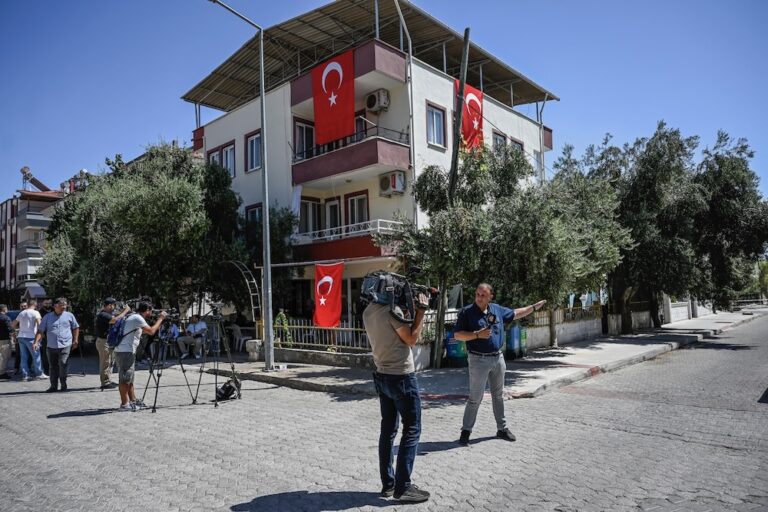The magazine was banned after it published an article about a 1972 massacre in the village of Kızıldere.
(BIANET/IFEX) – 8 April 2010 – On 4 April, the Istanbul 13th High Criminal Court imposed a publication ban on the weekly “Emperyalizme ve Oligarşiye Karşı Yürüyüş” magazine (also known as “Yürüyüş”) because of alleged “propaganda for an illegal organization” in connection with the article entitled “We are on the way to Kızıldere”. The article referred to the massacre in the village of Kızıldere on 30 March 1972.
Judge Ömer Diken also decided to confiscate copies of the current issue, published on 4 April.
In March 1972, ten young men in the village of Kızıldere, in Tokat province, northern Anatolia, kidnapped two British and one Canadian citizen in an attempt to prevent the execution of three student leaders. Special forces raided the village on 30 March 1972; the ten kidnappers and their three hostages were all killed in the raid.
The court found the magazine guilty of “spreading propaganda for a terrorist organization” but declined to name the organization.
The article describes the journey from Istanbul to Kızıldere. The journey sets out from the Gazi district of Istanbul at the grave of Dursun Karataş, leader of the Revolutionary Front for the Liberation of the Turkish People (DHKP-C) who died on 12 August 2008. Karataş is remembered as “uncle” by members of the People’s Front.
The publication of the magazine was suspended for one month under article 7/2 of the Anti-Terror Act; the confiscation decision was based on article 25/2 of the press law. The court also announced that an investigation had been launched by the chief public prosecutor into the magazine’s owner and managing director, Metin Bulut.
“Yürüyüş” management said in a written statement, “Of course we write about the people around Mahir who died. [Mahir Çayan is one of the founders of DHKP-C.] It is not a crime to write about Kızıldere and about the revolutionary manifesto created at Kızıdere. The real crime is the attempt to silence the voices of the revolutionaries.”


